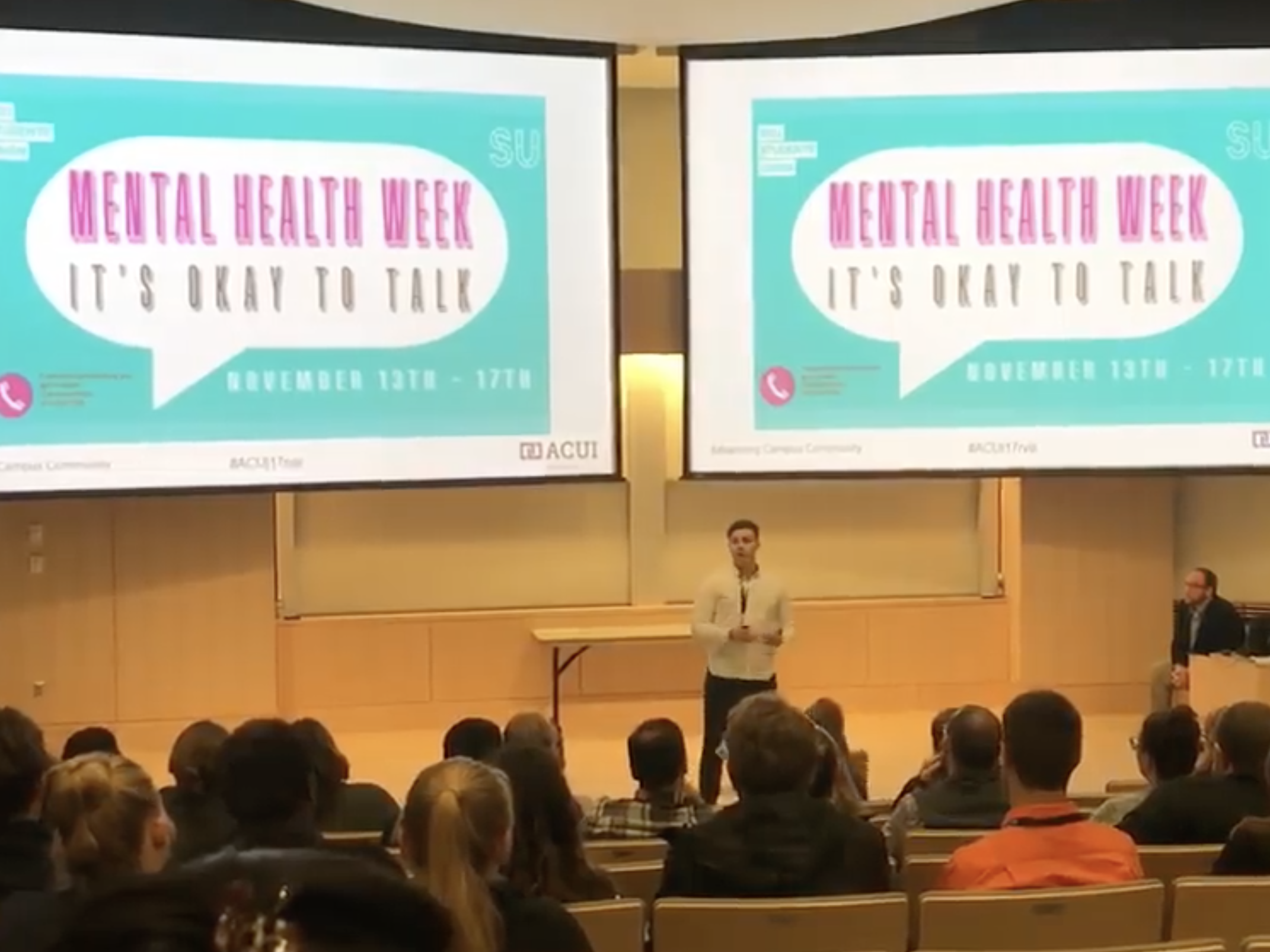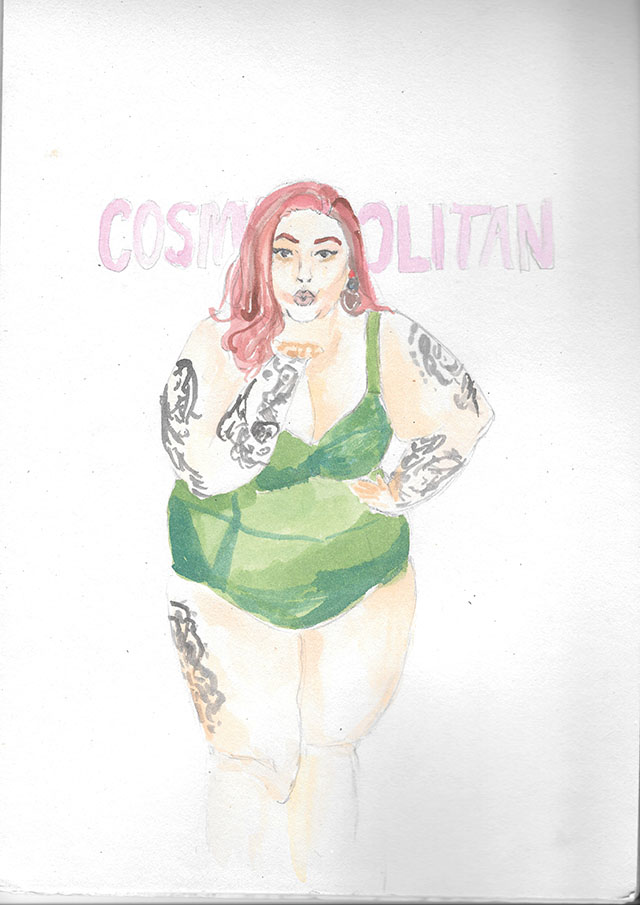
[dropcap]DCUSU[/dropcap] President Niall Behan spoke about his personal experience with mental health and wellbeing after the death of his father in a speech to students in UMASS Boston.
The speech at the ACUI conference was part of a ten year partnership between DCU and UMASS Boston, and came at the end of Mental Health week in DCU.
Behan described his dad John as an “extremely loving father” and “really good role model”. His father worked for the government and he described a childhood where his dad always brought him on trips like fishing, camping and hiking.
“Unfortunately when I was seven years old he grew very sick with depression and he was extremely strong minded, he had a lot of friends and a lot of close family, but in a very short period of time, about two months, he actually died as a result of suicide,” he said.
“This is something that devastated my life for many years to come. I think it altered my existence and really paved the way for many things to happen in my life which were completely out of my control. I never had any control of what was happening.”
“One thing that stuck with me was the embarrassment that I felt about talking about what happened to my dad and that was something that I couldn’t get away from because that was a feeling that wasn’t my issue but was society’s issue. We cannot talk openly about mental health issues because they are different in society to a physical issue,” Behan said.
In an interview with The College View, Behan said: “I definitely felt in my life that I was ashamed of what happened to my dad, because of the fact that it was a suicide, it wasn’t a physical illness that killed him. I think that’s something that I’ve now learned to understand and I’ve gotten a grasp on it based on counselling and by having support systems there in my life.”
“I always felt as though these things that happened to me made me less valuable to society than those around me because I actually almost wished that my dad had of died of something that was more well known or more easy to talk about”.
In his speech, Behan talked about how the words we use to describe mental health affect the perception of mental health issues. “Commit suicide, take one’s own life, it puts the onus on the action in the person, and it makes it sound like it’s a choice, when depression is an illness and very importantly suicide is a side effect of that illness. The words we use resonate with me that we don’t know how to talk about mental illness.”
He highlighted that males are five times more likely to die by suicide than females in Ireland, and the age group with the highest percentage are middle aged men, according to the HSE’s National Office for Suicide Prevention 2016 report.
“There are so many types of mental illnesses out there and we can’t address all of them in the same way, but what we can do is show ourselves that we are going to be there for somebody. We’re gonna give them eye contact, we’re gonna send that text, we’re gonna speak to them more often than we would usually. I think that’s the way we’re gonna get around this is, by showing our support to those especially in their time of need.”
Behan said that after a video of the speech was uploaded to facebook, he was contacted by people who were suffering with mental health issues. “It’s very possible to be anonymous on a college campus which is scary for people who are suffering.”
He said that the overall message of his speech was not to “scare people away or cry about what happened to me, but moreso to share the message that these things are real. It’s happened to young people but also that we don’t actually think about mental illness the same way as physical illness and it’s something that’s quite true even today.”
“These things happened to me 15 years ago but I don’t think that the worlds changed so much that this isn’t still an issue.”
If you need to talk, contact:
Samaritans 116 123 or email jo@samaritans.org
Aware 1800 804848 (depression, anxiety)
Pieta House 1800 247247 or email mary@pieta.ie – (suicide, self-harm)



